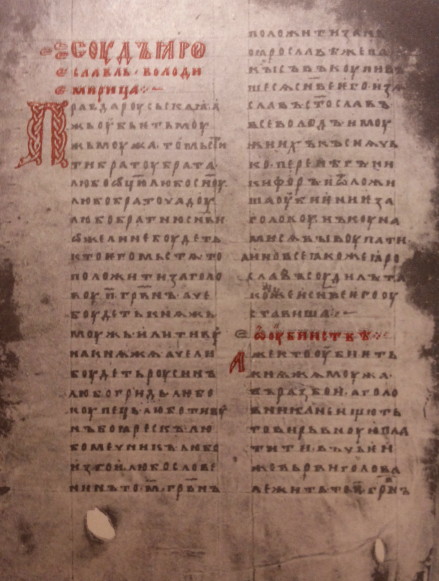Rus’ law
Rus’ law (Руське право; Ruske pravo). In a broad sense, the legal culture and system of Kyivan Rus’, based on Slavic and other sources, and in force in Ukrainian territories in the 9th to 14th centuries. Many aspects of this legal system were preserved in the Grand Duchy of Lithuania. The main written sources or memorials of Rus’ law are Ruskaia Pravda and the Lithuanian Statute.
In a narrower sense, Rus’ law refers to the elements of old Ukrainian law that survived in the Kholm and Belz lands and in Galicia after their annexation by Poland in the 14th century. Rus’ law continued to function in these territories, and was replaced gradually by Polish law. Public Rus’ law was completely displaced with the introduction of the Polish court system in Galicia in 1506; private law was retained longer in dealing with the Ukrainian population.
Rus’ law was especially widespread among the rural population. Villages governed by Rus’ law were the self-governing hromady, which elected their own leaders and had their own courts. As serfdom spread in the 15th and 16th centuries, many villages under Rus’ law were placed under Germanic law and then Polish law. Nevertheless, some norms of Rus’ law survived in Ukrainian customary law.
[This article originally appeared in the Encyclopedia of Ukraine, vol. 4 (1993).]

